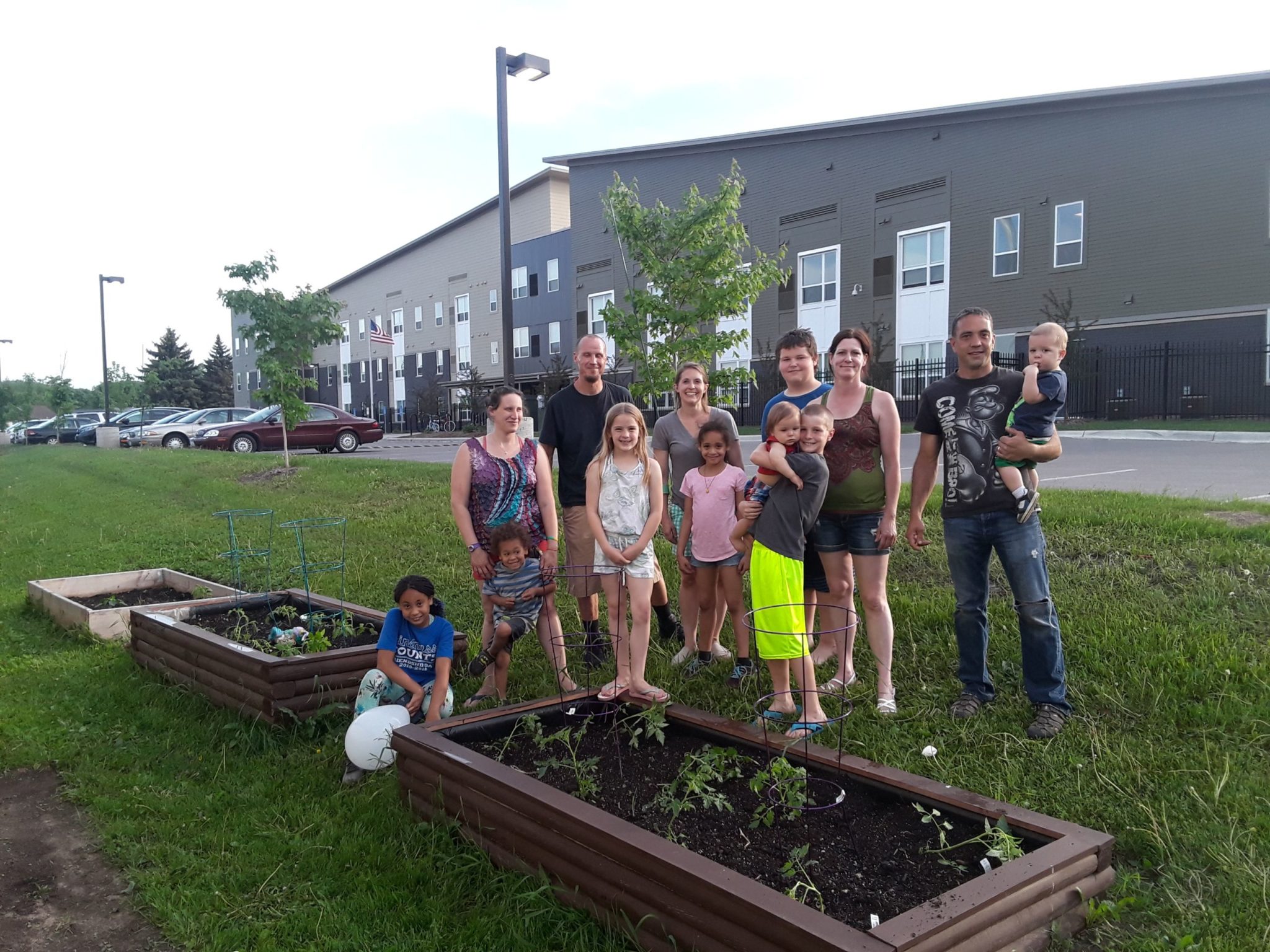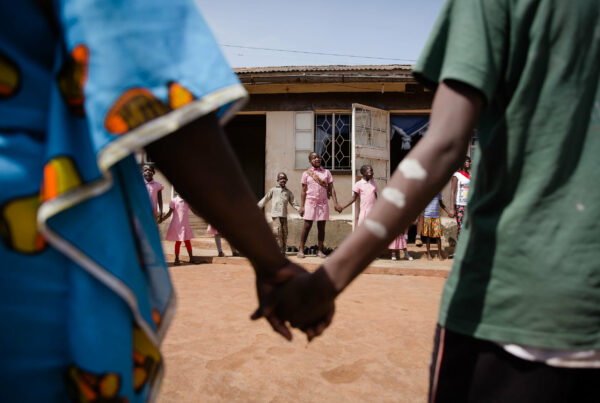L et me tell you about The Exchange. Honestly, I don’t have a catchy opening line to make you want to read on. I’m just so very eager to talk about this place, these people, and the idea behind it that I don’t want to get bogged down trying to sound clever. Imagine someone running up to you, saying, “You’ve got to see this!” and then read on.
I’ll begin where The Exchange began: with a nagging situation that the church has addressed over and over again — how to effectively bring good news to those beyond our doors. That word “nagging” is often used to describe pain and that’s pretty much how this question affected both Josh and Nikki Johnson: “How can we reach more people from more walks of life, not just people who fit in nicely with the already-organized church?”
“The idea was already brewing when we met in church office while Josh was a seminary student and I was using my social work degree in the church,” says Nikki. She couldn’t resolve the differences she was seeing between the church and the ways of Jesus. “When you look at church programs and where the money goes, it didn’t look like what Jesus did, where Jesus spent his time. I was in a different place back then—more angry, and more interested in revising the entire system. Josh, however, grew up in the church and loved church culture, but he was also painfully aware of people who would not engage the church as we knew her.” Nikki describes this concern as “a rope around our hearts, our minds, and our lives.”
From this leading, The Exchange began to take shape a few years ago in a neighborhood on the north side of Rochester, Minnesota, where Josh and Nikki now live with their three children. Basically, The Exchange differs from more typical churches in its response to two critical questions: Who? and What if?
Who?
Who is short for “who’s actually here”—their neighbors, no exclusions, no one overlooked or explained away. From the outset, the painful, nagging part for the Johnsons was a heartfelt concern to include people the rest of us often miss. The Exchange website explains, “This group of people is all around us; they are people who are struggling with poverty, mental health, substance abuse, and other life-altering issues—often historically as families. While the Church has reached out in some positive ways, this group has often felt a message that they’re currently too broken, too messy, or too far gone to have an immediate, equal, and meaningful place in the body of Christ.”
What if?
What if the Johnsons changed their purpose from “mission” to “co-op”? What would they say and do differently if they packed away the phrase “the haves and the have-nots” and replaced it with the word “friends”? The Johnsons explain, “‘Co-op’ is how we shift from ‘What I think you need’ to ‘I want to be your friend.’ Jesus came from heaven to earth to walk with sinners, so I will cry with you, be mad with you, whatever—because we are friends.” Friends are loyal, confide in each other, and are honest about their own failures. “Sometimes we are hugely unimpressive,” says Nikki. “We wear our shortcomings on our sleeves, but we don’t set aside our faith views. Everyone knows that Josh and Nikki are here because of Jesus. We are a neighborhood community and church. We believe so firmly that you are made with gifts from God that are needed here. You can come for both or either.”
Relationships can begin in unlikely moments. Josh describes one of these: “After a water bottle got thrown into our van windshield … we noticed the number of kids who wandered our neighborhood after school. God led us to begin the LINK—Leadership In Neighborhood Kids—at our house. Every Thursday from 3:30 p.m. to 5:15 p.m. we offer a safe place for neighborhood kids to come, have fun, and work together to make our neighborhood more fun and friendly. God has brought a great amount of diversity in the kids and families that we’ve connected with through the LINK. We’ve been having 10 to 15 kids at our house every week being loved, having fun, and experiencing people believing they can do great things.”
“Fun is powerful, it welcomes people in,” Josh writes in The Exchange newsletter. “It creates shared experiences, it reminds us all to lighten up, and it’s a great way to work together side-by-side. We take fun seriously around here!”
Nikki calls this approach to relationships “being comfortable with spotting God in the meandering.” Sometimes that results in a new group to meet a specific need, but it’s an awareness that can deepen any encounter. She remembers, “With a toddler on one hip, I have one hand to make coffee and I say, ‘Can you grab that?’ It’s not about getting the coffee made or a helpful-but-forgettable shared moment. It’s being conscious that we are making coffee, working shoulder to shoulder together.”
The Exchange, as its name implies, relies on everyone doing their part and everyone receiving something essential back. To be with each other as friends places the responsibility on both parties’ mutual understanding of one another. That means sharing power, if it’s in your hands, so others can experience having influence in their own community. The projects may be similar to those other churches have handled—helping out in the kitchen for Thursday evening community meals, how a clothing closet might work, if and where to start a community garden, sharing building space with recovery programs, helping a neighbor with yard work—but these experiences at The Exchange are cooperative from start to finish!
To some of us from church-as-we-know-it, laying aside familiar ideas and sharing leadership might look like inefficient and disheveled efforts, but sacrifice is part of the deal. We know, don’t we, that to lay down your life is to follow our Lord? At The Exchange, relinquishing their own ways opens the door to something holy, humbling, joyful, and very much like Jesus. Now, that’s exciting to share!
Shirley Heeg
Shirley Heeg is a woman of faith who has served as a minister to United Church of Christ and Reformed Church in America congregations in both Michigan and Minnesota. Retired, she and her husband, John, live mid-knuckle on Michigan’s pinky finger, in the same woodland home where they once raised their four children and where they welcome them back with their families as often as possible. These days she is a guest preacher and writer, and hopes to be a good friend.



